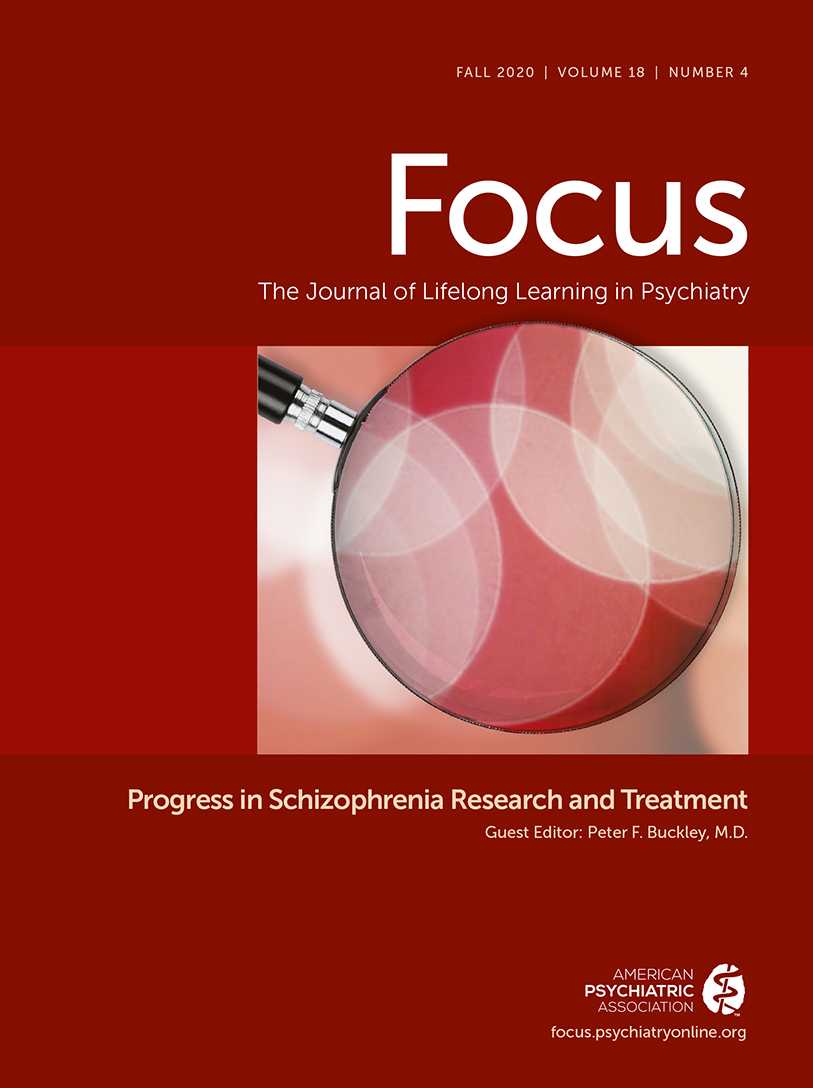Progress in Schizophrenia Research and Treatment
Being guest editor for an issue on schizophrenia is a real pleasure and a privilege. With this journal’s commitment to the lifelong learning of psychiatrists and clinicians, this particular issue is of interest to readers for several reasons. First, despite voluminous literature on the neurobiology of schizophrenia, the pathology of schizophrenia remains confusing, often describing contradictory findings and uncertain progress. Dr. DeLisi, a renowned schizophrenia researcher, provides a tour de force on the current understanding of the neurobiology of schizophrenia. Her report is complemented by an overview of a contemporaneous theory of neuroinflammation and schizophrenia, skillfully reviewed by Dr. Miller. Second, clinicians are aware that patients with schizophrenia often—and some might say, invariably—have comorbid psychiatric conditions. Dr. Hwang provides a succinct overview of these comorbidities. Third, clinicians are aware of the frequent disparity between findings—recommendations from clinical research as well as practice. To that end, Dr. Fochtmann provides practical guidance that is derived from the contemporary Practice Guideline for the Treatment of Patients With Schizophrenia, the product of a work group of the American Psychiatric Association on which Dr. Fochtmann provided great leadership. Fourth, perhaps nowhere is the divergence between research and clinical practice greater than in the treatment management of patients who have treatment-resistant schizophrenia. I attempt to summarize three recent representative guidelines that address this problem. And finally, it is not uncommon for clinicians to resort to the use of multiple drugs in combination to treat patients whose symptoms persist. Dr. Foster provides clarity on this vexing topic in her thoughtful overview of polypharmacy and schizophrenia. I am grateful to each of the authors for their synthesis of the extensive literature on this noteworthy aspect of schizophrenia. I am grateful to my colleague and friend Dr. Ahmed for answering the not-so-simple question of which patients will benefit from cognitive remediation.
This issue, accompanied by current references and seminal papers, is a comprehensive update on schizophrenia for clinicians. I thank my great friends and colleagues, Dr. Mark Rappaport and Ms. Kristen Moeller, for the privilege of introducing this compendium to you.



